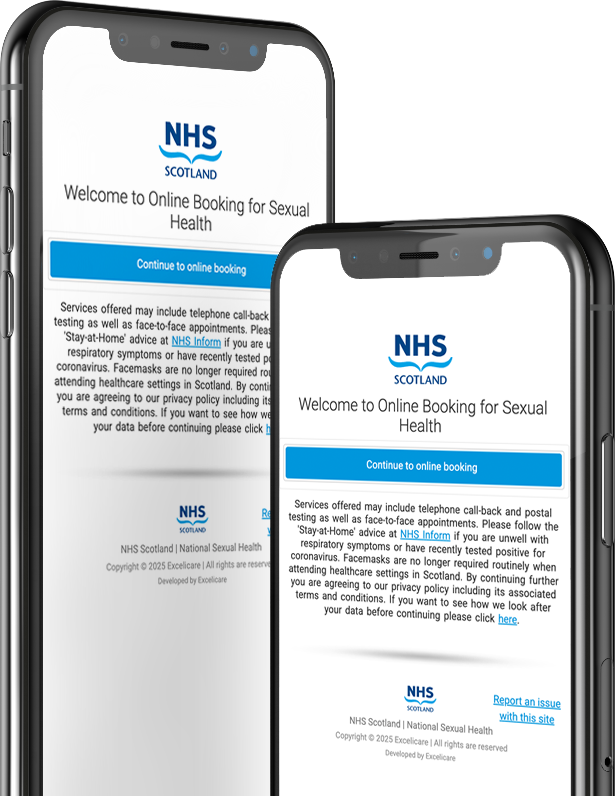
Contraception
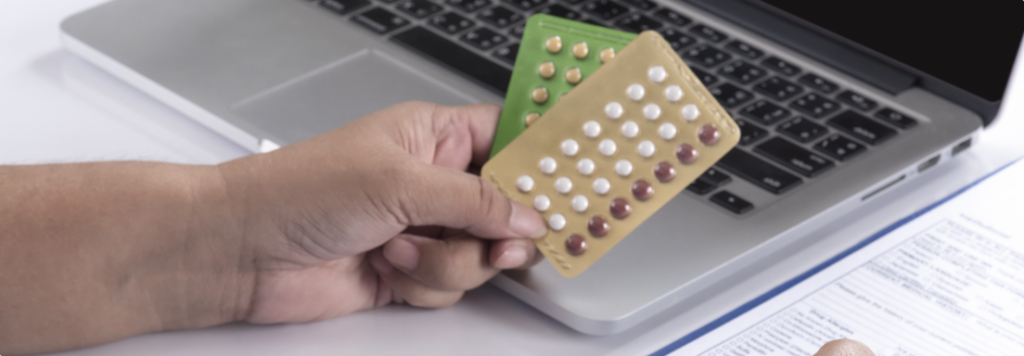
Appointments for Contraception
Appointments for Contraception are available at the sexual health clinics. Please call 01294 323 226 to arrange this.
Coil:
We offer coils for contraception. If you require a coil for other reasons such as part of HRT or heavy bleeding ONLY you might have to ask your GP to refer you to gynaecology.
Implant:
Please call 01294 323 226 to arrange this or book online here.
Injection:
If you are on the contraceptive injection already and require a repeat appointment within 13 weeks book your appointment online here.
If you are within one year of childbirth or abortion, or are a Young Person under 18 or feel in any way vulnerable, please call us on 01294 323 226. Please be assured we treat your information with the utmost confidentiality.
Book you appointment here.
Sexual health can provide a range of contraceptive options. Contraception is required until menopause (or the age of 55) and if used correctly has a high chance of preventing pregnancy. Have a look at how effective a method is here.
There is a wide range of options and we’re happy to help you decide which method works best for you. Contraception can have added benefits such as helping you with heavy or painful periods. We are happy to help you choose the right one for you. You can find out more about all different types of contraception available on the NHS inform website.
Contraception is free for all women and men through the NHS in the UK. Ayrshire and Arran offers a free condom service called C-card.
You can get contraception from your GP and practice nurse and Pharmacist.
Some pharmacies offer some forms of contraception. Please check if there is a pharmacy close to you offering this service here. The young people service provides contraception for young people age 17 and under.
Things to consider when choosing contraception
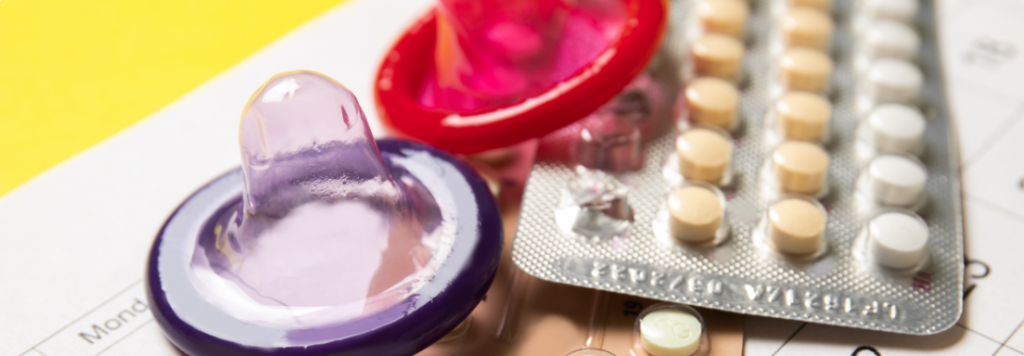
Contraceptive Options
Sexual health can provide a range of contraceptive options.
Contraception is required until menopause (or the age of 55) and if used correctly has a high chance of preventing pregnancy. There is a wide range of options and we’re happy to help you decide which method works best for you:
Contraception is free for all women and men through the NHS in the UK.
Ayrshire and Arran offers a free condom service called C-card.
You can get contraception from your GP and practice nurse and Pharmacist.
Some pharmacies offer some forms of contraception. Please check if there is a pharmacy close to you offering this service here.
The young people service provides contraception for young people age 17 and under.
The NHS inform website has more information on where to get contraception.
We are happy to help you choose the right one for you. You can find out more about all different types of contraception available on the NHS inform website.
Your Guide to Contraception & It’s Effectiveness – view in full screen here
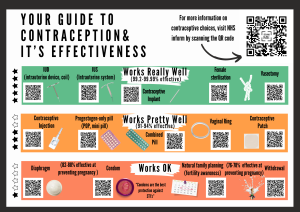
Pictograph – Your Guide to Contraception & It’s Effectiveness – view in full screen here
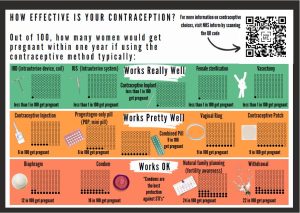

Postnatal Contraception
Information about contraception after you’ve had a baby
There are many very effective and safe methods of contraception that are ideal for people who have just had a baby. You can find out more about your options here. Many methods are safe to be used when you are breastfeeding.
It is safer for you and any future pregnancies to wait at least 12 months before getting pregnant again.
The need for contraception returns again as soon as 3 weeks after your baby is born, so ideally starting the sooner the better is best. Methods like the progestogen-only-pill, injection, IUDs and implants can be started immediately after your baby is born.
Please watch this short video about options after child birth.
The video is also available in Polish and Urdu below:
You can also download this leaflet:
Contraception After Having a Baby.
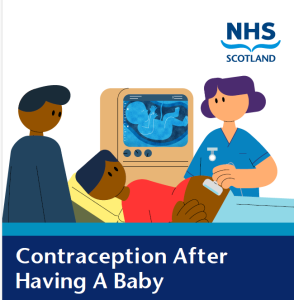
Here is information for you in:
IUD Immediately After Child Birth
Intrauterine contraception, commonly known as a ‘coil’, is one of the most effective ways of preventing or delaying another pregnancy. There are two types – a hormonal IUD and a non-hormonal copper IUD . In most cases, these can be safely fitted for you at the time of having your baby, whether by caesarean or vaginal birth.
You can watch a short video below to find out more about it here:
(Thanks to NHS Lothian for their permission to use this video.)

I think I need emergency contraception
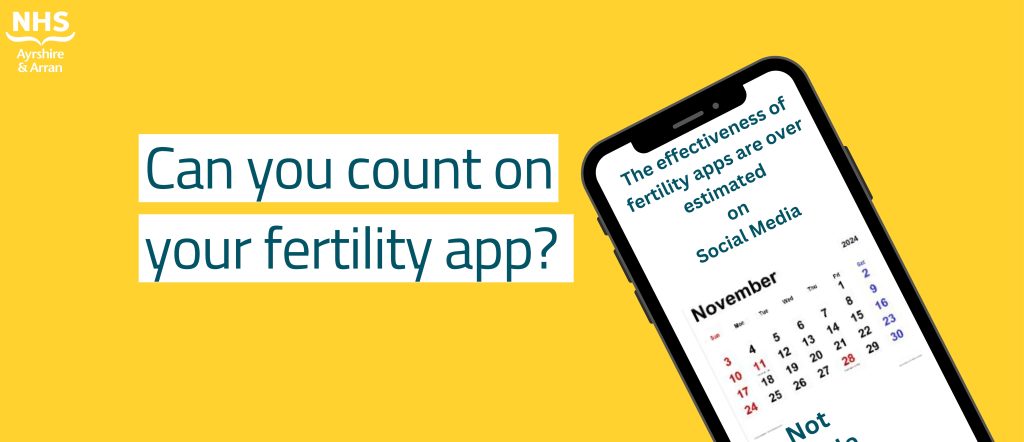
There has been a change in trends and people’s attitude towards hormonal contraception. Statistics state that there is increase in termination of pregnancies (ToP) from previous years. Anecdotal evidence suggests young people are accessing information on non-hormonal contraception via social media platforms such as TikTok and Instagram.
Trends in contraception
- Hormonal contraception has perceived side effects and risks
- Preference of natural methods (GREEN SEX)
- Social media bias in reporting natural methods and period apps
- Covid -19 had impact on Relationship Sexual Health and Parenthood Education
Change in people’s attitude
- Social media supports hormone hesitancy
- This may increase unintended pregnancy
- Women feel pressured into using hormonal contraception
What does the data state;
Pfender et al.2024
Contents analysis of TikTok
Social media fuels hormone hesitancy and scaremongering is driven by claims of personal experience rather than scientific evidence
Social media promotion of non hormonal methods may increase unintended pregnancy.
Pfender & Devlin 2023
Content analysis of YouTube. False sexual health information presented to the young audience. Highlighted the encouragement of discontinuing of birth control medication and conveying inaccurate information on sexual health
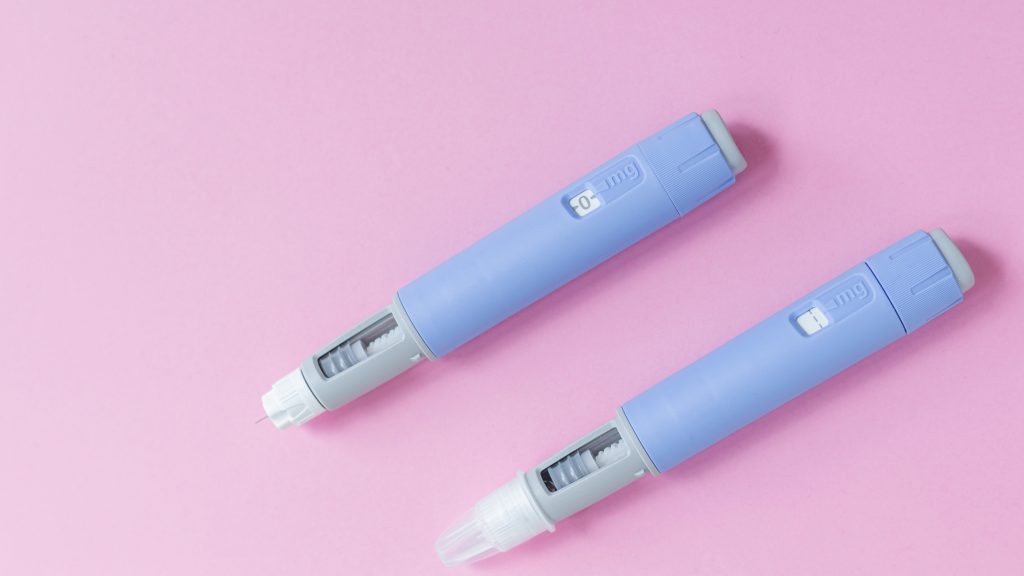
Weight Loss Jabs and Contraception Pills
Weight loss jabs may make contraception pills less effective.
Tirzepatide = Mounjaro
- Tirzepatide seems to temporarily reduce the absorption of contraceptive pills making them less effective.
- The manufacturer says: Use condoms for 4 weeks after starting Tirzepatide, and for 4 weeks after each dose increase.
- Alternatively, you could switch to another type of contraception such as an implant or IUCD.
- Don’t use Tirzepatide during pregnancy
- Stop Tirzepatide at least one month before a planned pregnancy.
Semaglutide = Ozempic, Wegovy, Rybelsus
- Semaglutide does not seem to change the absorption of contraceptive pills.
- Do not use Semaglutide during pregnancy.
- Stop Semaglutide at least two months before a planned pregnancy.
- These meds can cause diarrhoea and vomiting which can stop contraception pills working. Consistent use of condoms will reduce the risk of unplanned pregnancy.
- If you vomit within a few hours of pill taking, follow missed pill rules (see manufacturer instructions in leaflet in box).
- If you have severe diarrhoea for >24 hours follow missed pill rules (see manufacturer instructions in leaflet in box).
- If you have persistent vomiting or diarrhoea, consider non-oral contraception.
*If a doctor or nurse asks you if you are taking any medicines you must tell them about weight loss medicines even if you are buying it yourself.*
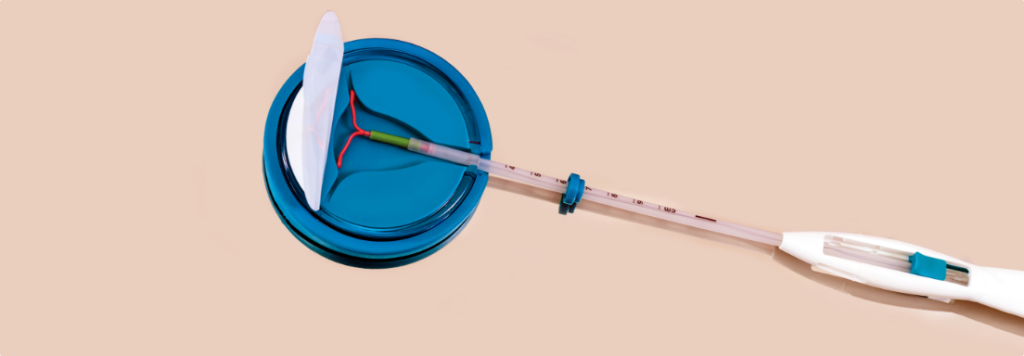
I want a contraception I don’t have to remember to take every day
We offer long lasting contraception options such as the copper and medicated coils and Implants. We also provide options like the contraceptive injection and patch which last between 1 and 3 months.
You can book an appointments for:
Coils (IUD/IUS). To fit, remove or remove & fit a new coil.
Implants. To fit, remove or remove & fit a new implant.
Read: coil appointments information
Watch IUD/IUS video:
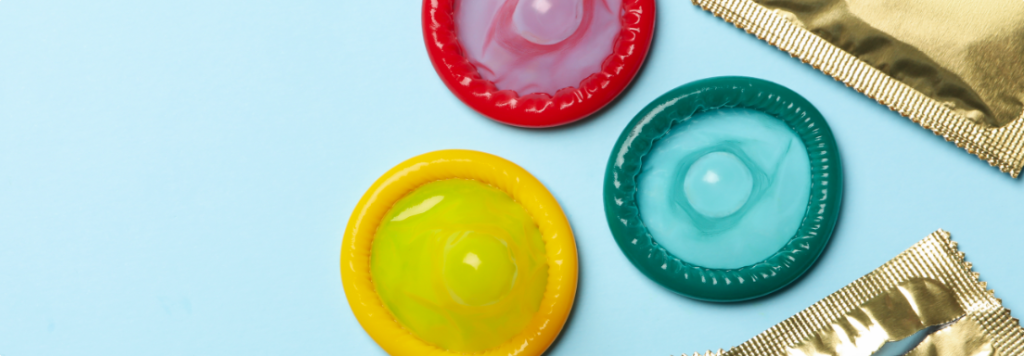
I am happy to have a daily, weekly monthly method of contraception
We can provide a range of different contraceptive options including:

I want a permanent form of contraception
Female sterilisation – click here
Vasectomy – watch the video below.

Female Sterilisation
What is it?
A permanent method of contraception which stops egg and sperm meeting
How does Female Sterilisation work?
The fallopian tubes are cut, sealed or blocked, which stops sperm and egg meeting.
How effective is Female Sterilisation?
In most cases it is over 99% effective with 1 in 200 failing (this can be at any time, even many years after the operation).
What are the advantages of Female Sterilisation?
It is a permanent method of contraception, it does not interrupt sex, once the operation has worked you don’t have to think about contraception. Periods are unaffected.
What are the disadvantages of Female Sterilisation?
It requires an operation which will need a general anaesthetic. There is a small increased risk of ectopic pregnancy if the operation fails. If you change your mind the NHS will not reverse the operation, not give you fertility treatment. Even if you pay for these privately they may not work.
Does Female Sterilisation protect against infection?
No, condoms are the only form of contraception which give protection against some infections.
How do I get it?
Ask your GP to refer you for a Sterilisation discussion appointment
Watch: Female Sterilisation: is it for you?
Listen: Is sterilisation for me?
RELATED PAGES

